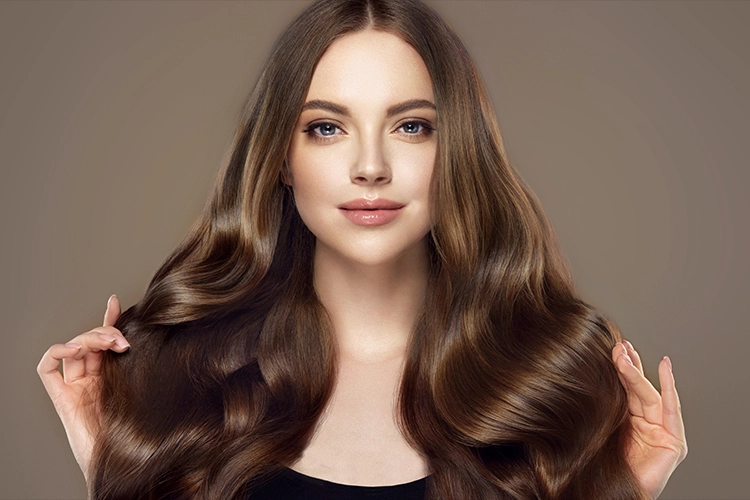- Kartaltepe Mahallesi İncirli Caddesi Limon Çiçeği Sokak No: 1 34145 Bakırköy İstanbul
- +90 541 548 52 47

How Long Do You Have to Wait for the Second Hair Transplant Surgery?
30/01/2023
Does Vitamin D Deficiency Trigger Alopecia?
16/02/2023Although genetic transmission plays a critical role in hair health; diet, seasonal conditions, environmental factors and hair care routines are also very decisive. For this reason, before scapegoating genetic inheritance, it is useful to review your approaches to external factors and your daily living habits. Here’s to you; 6 tricks that can help you have lively, shiny and full hair.
- Increase Daily Protein Amount
First of all, we need to know about hair; Hair is made up of protein. Each hair strand carries the keratin protein in its body. Protein consumption is therefore essential for healthy hair. Your well-rounded diet should consist of protein-rich foods. Make sure you get at least 45g of protein per day. Diets that do not contain enough protein; It can cause your hair to break more easily, become dull, and even worse, fall out. Those who are wondering where to buy protein can benefit from the following list:
- Red meat
- Egg
- Chicken
- The fish
- legumes
- Milk and milk products
- Attention to Zinc Deficiency!
Zinc deficiency is among the causes of hair loss. It is an important trigger. Losing between 100 and 150 strands of hair per day is considered normal. When you notice that your hair is starting to fall out excessively, you need to make sure that you are getting enough zinc as well as protein. Here are some foods that contain zinc:
- seafood
- Red meat
- green leafy vegetables
- sea products
- Poultry
You can also use the amount you can’t get from food as a supplement.
- Omega 3 Nourishes Hair Roots
Omega 3 fatty acids are a great source of nutrients for hair. By supporting the health of the scalp, it prevents the hair from drying and breaking. So, from which food sources can you get omega 3?
- Tuna, salmon, sardines , mackerel
- flaxseed
- Walnut
- cornflakes
- Cottage cheese
- Yogurt
- Treat Your Hair Well!
If you do not want your hair to break, you should avoid harsh and rude behavior. You can remove bad habits from the list by following the tips below.
- High-temperature hair dryers and styling devices damage the structure of the hair.
- After washing the hair, if possible, it should be left to dry on its own. Even if it is necessary to dry, care should be taken to ensure that the device is at the lowest temperature.
- Instead of rubbing the hair with a towel after washing to prevent hair breakage; water and moisture should be removed with soft movements.
- In order for the hair to look more lively and healthy, it should be cut at regular intervals.
- Massaging the scalp with gentle movements increases blood circulation and ensures proper nutrition of the hair follicles. During the massage, you can also get support from natural oils that nourish the scalp.
- Frequent Washing and Excessive Use of Shampoo Damage Hair
Sometimes exaggerating care habits can have harmful consequences. Standard care rules for hair health should be as follows:
- Hair should not be washed more than once a day.
- While washing the hair, attention should be paid to the temperature of the water. Extremely hot water or very cold water damages the sebum necessary for hair growth. The temperature of the water should be on the warm setting.
- Using excessive shampoo does not mean that your hair will be cleaned better. Using too much shampoo during washing; may cause damage to the scalp.
- Choosing the Right Shampoo Is Important
When choosing a shampoo, it is necessary to consider both the content and the type of hair. Shampoos with harsh ingredients such as ammonium lauryl sulfate, sodium lauryl sulfate should be avoided. You should consider that expensive products do not always reflect the quality of the product and you should definitely read the shampoo labels. In addition, shampoos are produced specifically for hair types. You should choose the most suitable product for you from the products that are produced separately for normal, dry, oily or dandruff hair.




